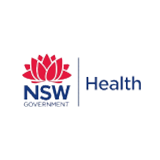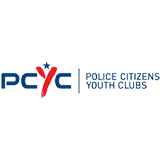Creating safer workplaces through prompt reporting of accidents at work
Discover how timely accident reporting can transform your workplace safety culture and protect your most valuable asset - your people.
Workplace safety is a cornerstone of successful business operations, yet many organisations struggle with establishing effective incident reporting systems. The challenge isn't just about having procedures in place—it's about creating a culture where employees feel empowered and encouraged to report accidents promptly.
According to Safe Work Australia, workplace injuries cost Australian businesses over $61.8 billion annually. This staggering figure underscores the critical importance of proactive safety measures, with timely reporting of accidents at work being a fundamental component.
Understanding why immediate accident reporting matters isn't just about compliance—it's about fostering a workplace environment where safety is paramount and every incident, no matter how minor, is treated as an opportunity to prevent future accidents.
Why immediate reporting of accidents at work matters
Creating a robust safety culture begins with understanding the significance of prompt incident reporting. When accidents occur, immediate reporting isn't just a procedural requirement—it's a vital step that can make the difference between preventing future incidents and perpetuating unsafe conditions. Here's why every moment counts when it comes to workplace accident reporting.

Preserves critical evidence
When an accident occurs, vital evidence can disappear or become contaminated. Immediate reporting ensures that physical evidence, witness accounts and environmental conditions are documented accurately while memories are fresh and the scene remains undisturbed. This detailed information becomes invaluable for investigating root causes and implementing preventive measures.

Ensures timely medical attention
Swift reporting of accidents enables prompt medical assessment and treatment, even for seemingly minor injuries. Early intervention can prevent complications, reduce recovery time and improve outcomes for injured workers. It also demonstrates your commitment to employee well-being, helping to maintain trust and morale while potentially reducing workers' compensation costs.

Maintains legal compliance
Reporting workplace accidents within mandated timeframes is a legal requirement in Australia. Prompt reporting helps organisations meet their obligations under Work Health and Safety regulations, avoiding potential penalties and complications with insurance claims. It also establishes a clear record of the organisation's commitment to safety and regulatory compliance.

Enables effective investigation
The sooner an accident is reported, the more accurately its causes can be identified and analysed. Fresh evidence and recent memories allow investigators to piece together events more effectively, leading to more accurate conclusions about contributing factors and necessary corrective actions. This thorough understanding is crucial for preventing similar workplace incidents.
What Our Community Says About Us
Our Partners





How Youthsafe supports workplace safety
Youthsafe specialises in transforming workplace safety culture through comprehensive training and support programs. Our expert-led workplace safety training equips organisations with the knowledge and tools needed to implement effective reporting systems for workplace injuries and create safer work environments.
Through practical workshops, customised consulting and ongoing support, we help businesses develop robust safety protocols that encourage prompt reporting of accidents at work and proactive hazard management. Our approach focuses on building sustainable safety cultures that protect both employees and business interests.
FAQs
Report all accidents immediately to your supervisor. Formal documentation should be completed within 24 hours of the incident occurring.
Everyone in the workplace shares responsibility for reporting accidents. Workers should report to supervisors, who must ensure proper documentation and notification to relevant authorities.


